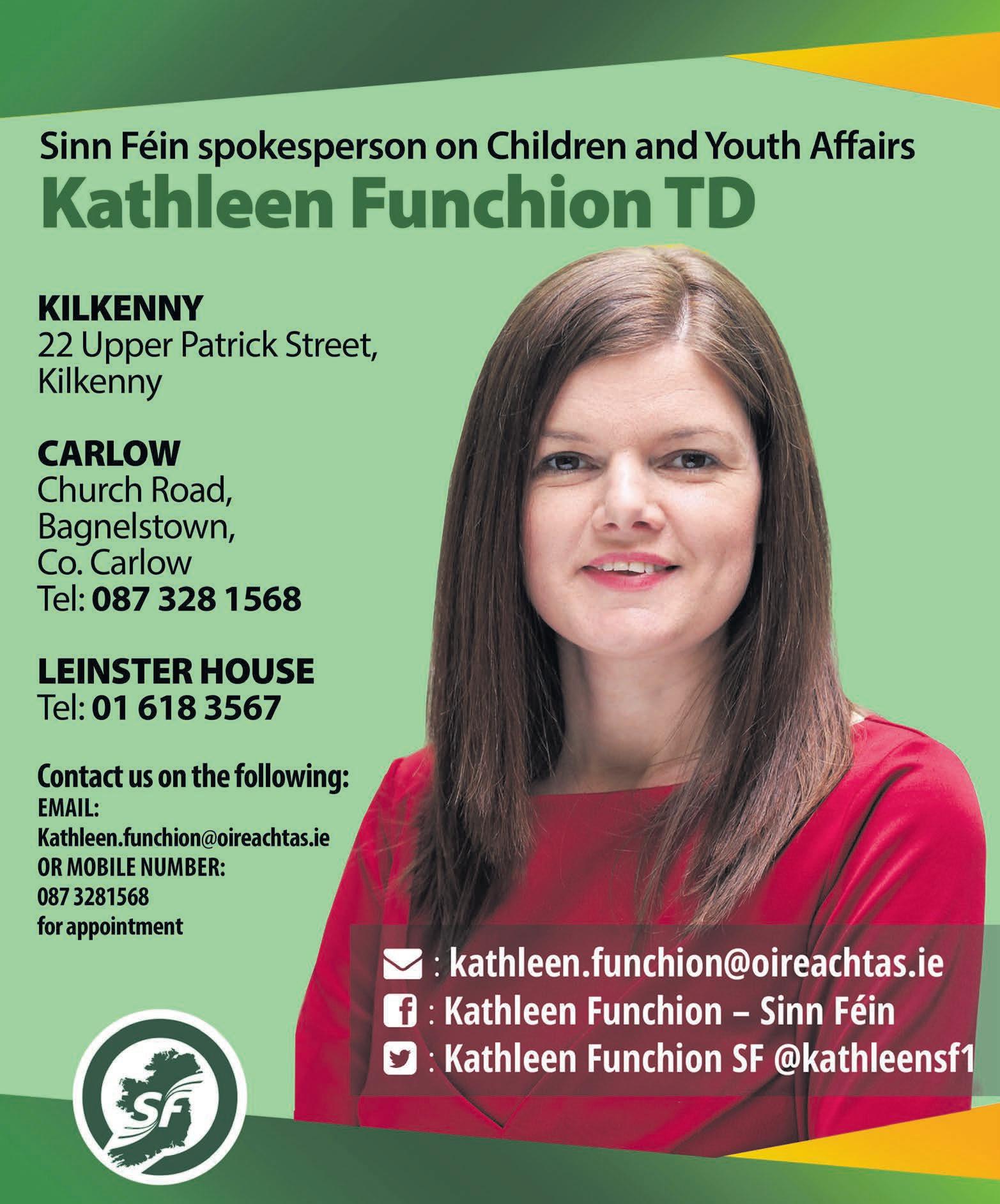
6 minute read
John Ellis
Getting advice on your pension
BY JOHN ELLIS
Advertisement
FINANCIAL ADVISOR
LAST week we looked at various excuses that people use to not invest into a pension plan.
Now, you are one of the prudent few and your retirement date has arrived. You’ve been planning and saving for years, if not decades. You may be dissatis ed with your nal pot, but anything is better than nothing. e average pension pot at retirement in Ireland is €90,000. e harsh reality is that, while €90,000 may appear to be a substantial sum, it is nothing when it comes to pensions.
Assuming an annuity rate of 3.15% this will give a level payment of €54.51 a week assuming you don’t take the taxfree cash option. If you take the 25% tax free cash, you will have a pension of just €40.88 a week.
Should you take the Approved Retirement route you will have no guaranteed payment, and this will leave you vulnerable to in ation and stock market crashes.
Let’s assume you have a reasonable fund built up over the years. You have an inherent problem.
How can you make your money last for two, if not three, decades of retirement? And you need to face your mortality! e single most di cult part of handling your money in retirement is that you don’t know when you will die or whether you will need expensive medical intervention or care in later life.
Employees in de ned bene t plans have certainty about the amount of money they will receive monthly, as well as the guarantee that it would be paid until they die. However, this type of protection has all but disappeared outside of the public sector.
Whichever route you choose, you’ll eventually reach retirement and receive a product providers nal statement – as one advisor said, it’s like “Here’s your pension pot”, bye bye and best of luck to you.” (Others, for whatever reason hear nothing and don’t realise they have money languishing in a fund somewhere.)
Will you get a lot of help? Probably not, unless you nd a competent Financial Advisor who will help you through the maze of “drawdown” plans, investment possibilities, fund choice, the Approved Retirement Fund vs Annuities discussion, and when and how, or should I collect the 25% tax-free lump payment.
But none of this will make it any easier to save enough money in the rst place. You’ll need to save more than €300,000 to retire on a €25,000a-year income, which includes a €12,911 a year state pension plus private pension, which many consider to be the minimum.
Rip-o s have a huge chance of happening. at is why the Central Bank is at pains to inform people of their entitlements and rights. You hear of funds that were promoted as unbelievably good value ending up bankrupt and losing clients hard earned pensions never to be regained.
And sometimes you just have no idea what you have in your hand.
Case in point – a client called in earlier this year. It transpired he had a paid-up company pension with a local employer who has long ceased trading. Out of the blue he received a letter to say he had now reached the scheme retirement date and here were his pension options. He was entitled to a lump sum of approx. €4,500 and a guaranteed pension of €4,300 for the rest of his life.
He was content with the o er and asked me to arrange the drawdown. What he didn’t know was he had a traditional with-pro t pension with very valuable underlying options.
To cut a long story short he received a tax free lump sum of approximately €43,000 and the balance of funds were invested into an approved retirement fund to provide a retirement income.
He sold his valuable guarantees you may say. He did. But he knew what he was doing and was able to make an informed decision. It is imperative to seek good nancial advice.
John @ellis nancial.ie. 086 8362633.


Deputy Funchion calls for frontline workers to be recognised
BY: DEPUTY KATHLEEN
FUNCHION
SINN FEIN TD FOR KILKENNY CARLOW
IRISH Society as a whole has been through a terrible time during the pandemic and so many su ered bereavement and loss but throughout it all we saw huge courage and acts of kindness from our frontline workers, our community and voluntary groups, our carers and countless individuals who went the extra mile to ensure their neighbours had the support they needed.
Now we have the opportunity to recognise the contribution that people made. Sinn Fein have suggested a number of ways this could be done including an additional public holiday and a voucher scheme, similar to that in the north, which everyone can avail of. We had already proposed an additional holiday to mark the 1916 Rising and next year would be an ideal opportunity to bring this forward.
With regard to frontline workers – of course they need special recognition and the respective Unions have put proposals on the table regarding additional leave and payments – the government need to engage in those discussions in a spirit of generosity – I have to say the approach of government so far in tackling issues like the student nurses and midwives has lacked the sort of generosity needed now.As Sinn Fein spokesperson for Children, I particularly want to commend all those working in commend all those working in childcare and the early years childcare and the early years education sector for the com-education sector for the commitment and professionalism mitment and professionalism they have shown during the they have shown during the pandemic. It must be pointed pandemic. It must be pointed out that childcare and early out that childcare and early years educators are some of years educators are some of the lowest paid professionals the lowest paid professionals in the wider education sector in the wider education sector and yet they were expected to and yet they were expected to resume their roles whilst their resume their roles whilst their colleagues in primary and sec-colleagues in primary and secondary schools were able to ondary schools were able to resume remote teaching. resume remote teaching. ey have played a ey have played a pivotal and vital role in pivotal and vital role in ensuring Irelands re-ensuring Irelands recovery and they must covery and they must be recognised for the be recognised for the work they did.
Similarly when I Similarly when I meet with front-meet with frontline health workers line health workers while they obvi-while they obviously want recognition for their work during the pandemic but the bigger issue for them is the sort of health service they are going to work in in the future – they want a health service that works for patients, for those frontline workers and for our society – that means proper investment in healthcare and never having a system left so exposed as it has been over the past 18 months.







